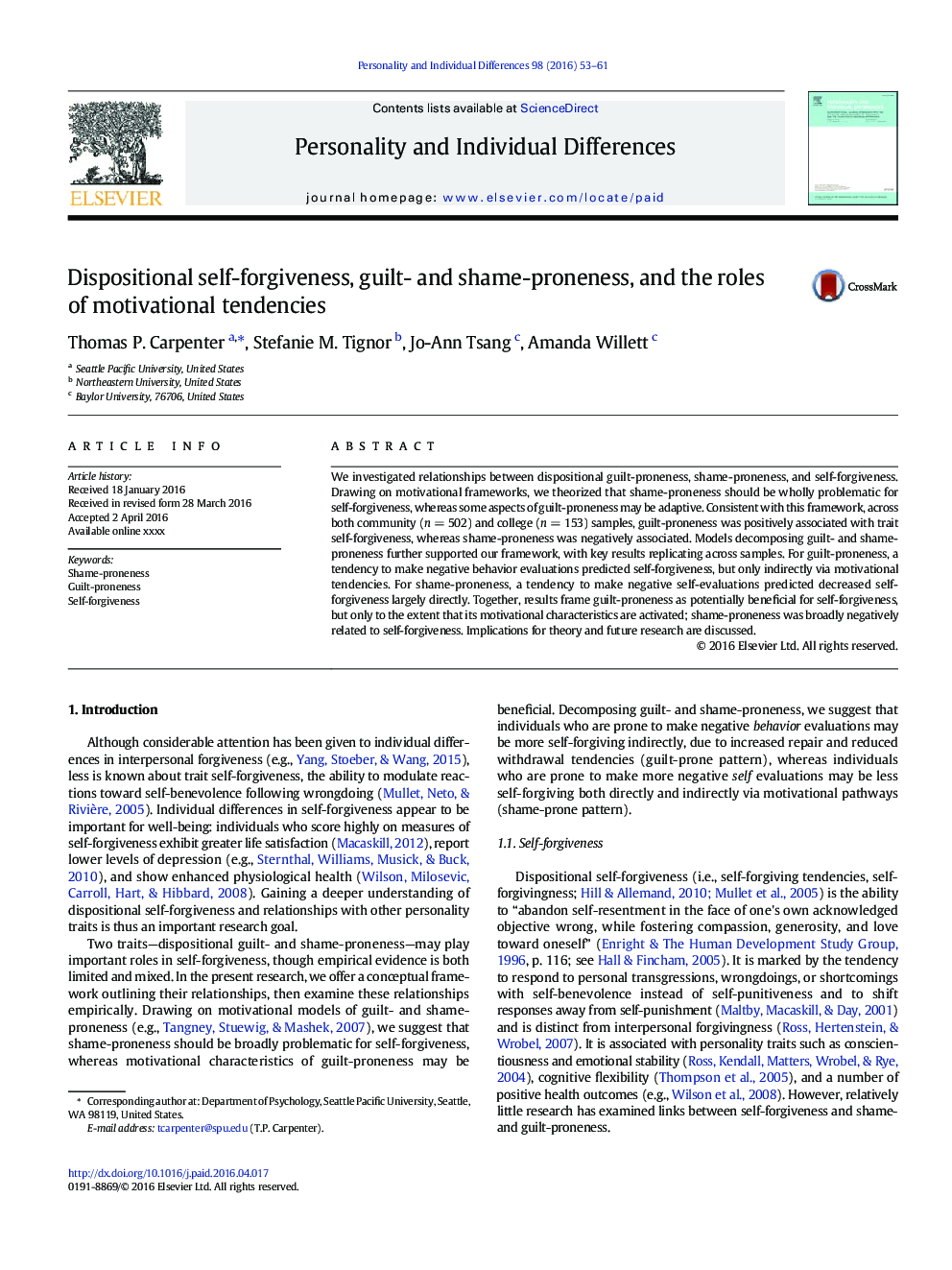| Article ID | Journal | Published Year | Pages | File Type |
|---|---|---|---|---|
| 7249900 | Personality and Individual Differences | 2016 | 9 Pages |
Abstract
We investigated relationships between dispositional guilt-proneness, shame-proneness, and self-forgiveness. Drawing on motivational frameworks, we theorized that shame-proneness should be wholly problematic for self-forgiveness, whereas some aspects of guilt-proneness may be adaptive. Consistent with this framework, across both community (n = 502) and college (n = 153) samples, guilt-proneness was positively associated with trait self-forgiveness, whereas shame-proneness was negatively associated. Models decomposing guilt- and shame-proneness further supported our framework, with key results replicating across samples. For guilt-proneness, a tendency to make negative behavior evaluations predicted self-forgiveness, but only indirectly via motivational tendencies. For shame-proneness, a tendency to make negative self-evaluations predicted decreased self-forgiveness largely directly. Together, results frame guilt-proneness as potentially beneficial for self-forgiveness, but only to the extent that its motivational characteristics are activated; shame-proneness was broadly negatively related to self-forgiveness. Implications for theory and future research are discussed.
Keywords
Related Topics
Life Sciences
Neuroscience
Behavioral Neuroscience
Authors
Thomas P. Carpenter, Stefanie M. Tignor, Jo-Ann Tsang, Amanda Willett,
